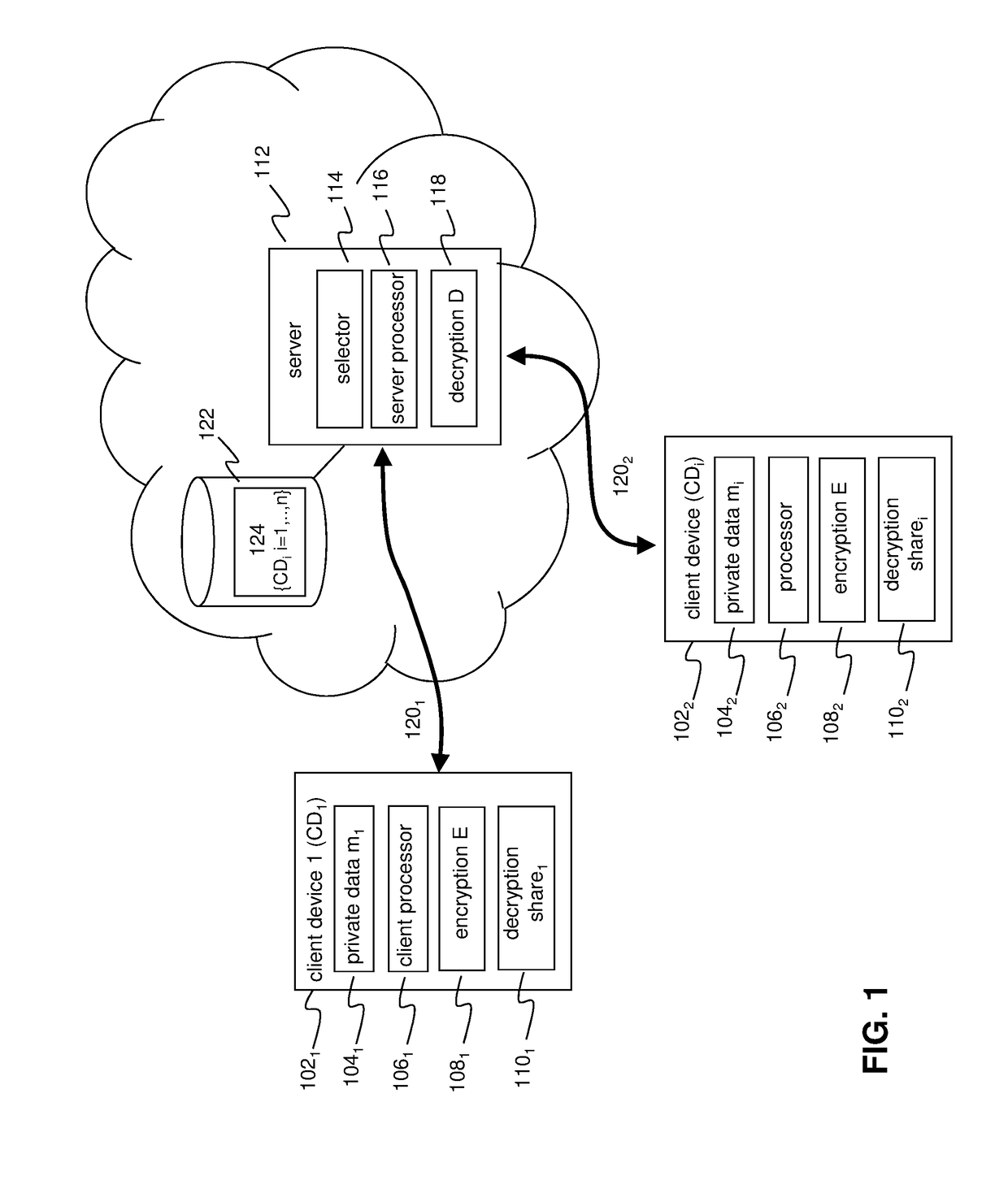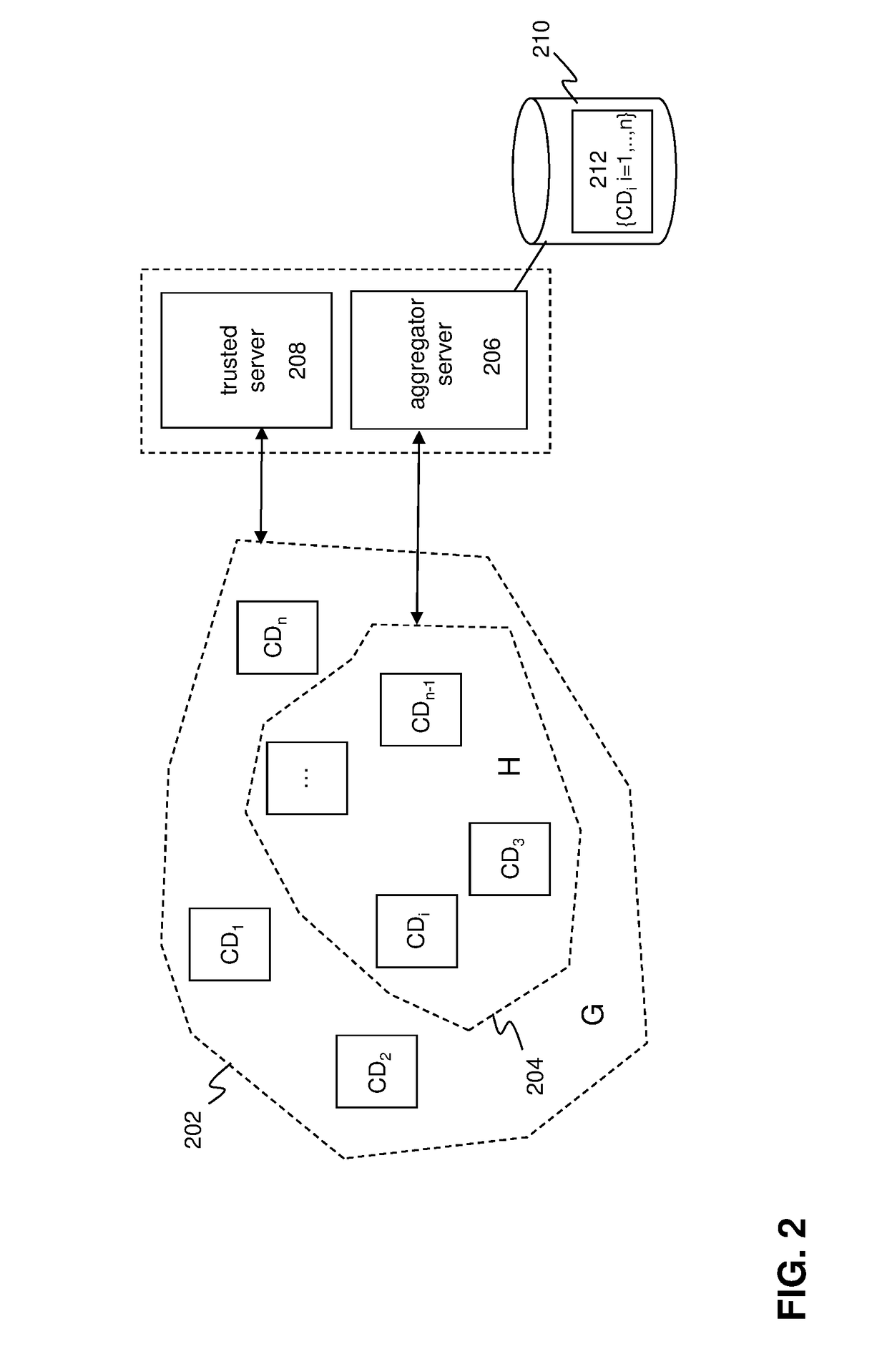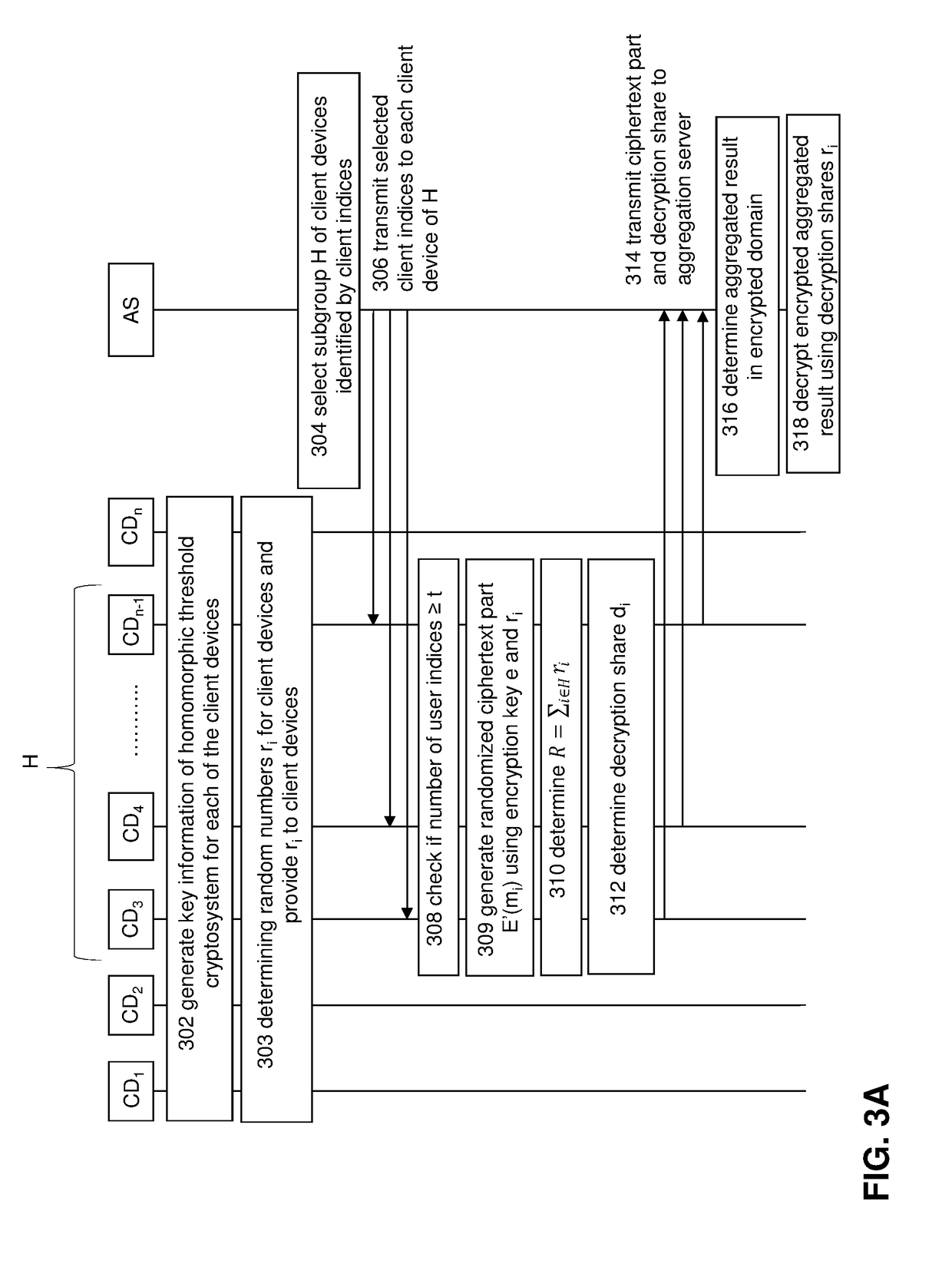Privacy preserving computation protocol for data analytics
a data analytics and privacy-preserving technology, applied in the field of privacy-preserving computation protocols for data analytics, can solve the problems of people or organisations being reluctant to provide private data to third parties over the internet, companies at risk both legally and in reputation, and applications such as electronic online voting schemes, which could potentially make government elections much simpler, efficient and cheaper, are still not generally accepted, and achieve privacy-preserving protocols. efficient
- Summary
- Abstract
- Description
- Claims
- Application Information
AI Technical Summary
Benefits of technology
Problems solved by technology
Method used
Image
Examples
Embodiment Construction
[0054]The embodiments described below improve the functionality of a computer system by providing client devices with a new ability to control access to sensitive user data held by the client devices. In particular, the embodiments provide a new functionality in a client computing device that allows the client device to limit access to encrypted versions of sensitive data so that only certain servers can gain access to the encrypted data. In particular, only a server that will aggregate the encrypted data with encrypted data from a sufficiently large number of other client devices will be given access to the encrypted data. Other servers will be prevented from gaining access to the encrypted data. Client devices have not had such control in the past and as such, the embodiments represent a significant improvement in the operation of computing devices.
[0055]FIG. 1 schematically depicts a privacy-preserving computing system for securely computing private data according to an embodimen...
PUM
 Login to View More
Login to View More Abstract
Description
Claims
Application Information
 Login to View More
Login to View More - R&D
- Intellectual Property
- Life Sciences
- Materials
- Tech Scout
- Unparalleled Data Quality
- Higher Quality Content
- 60% Fewer Hallucinations
Browse by: Latest US Patents, China's latest patents, Technical Efficacy Thesaurus, Application Domain, Technology Topic, Popular Technical Reports.
© 2025 PatSnap. All rights reserved.Legal|Privacy policy|Modern Slavery Act Transparency Statement|Sitemap|About US| Contact US: help@patsnap.com



